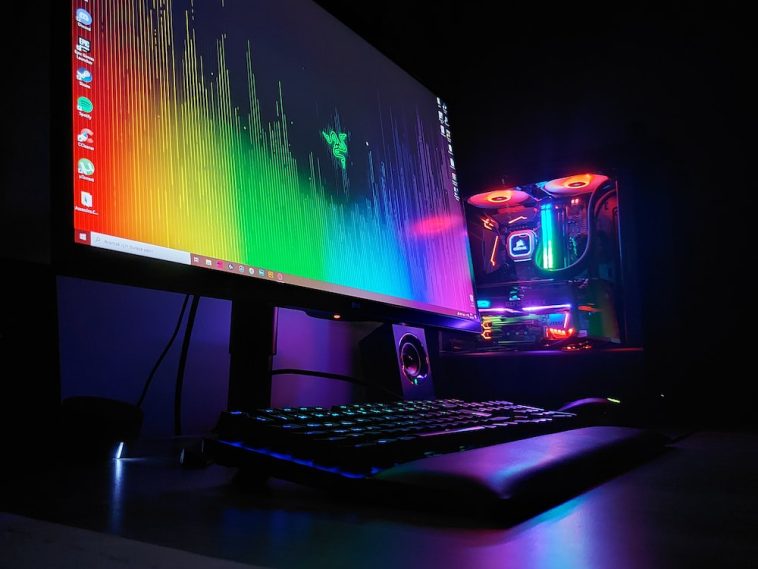Introduction.
Finding the perfect gaming laptop can feel a bit overwhelming, especially with all the options out there.
With so many brands, specs, and price tags, it’s easy to wonder if you’re making the right choice. But here’s the thing: buying the right gaming laptop doesn’t have to be confusing.
If you focus on what matters most to you—performance, budget, and features—it can actually be a fun process.
Let’s break it all down so you can confidently pick the laptop that fits your gaming needs and doesn’t leave you with buyer’s remorse.
Why Your Gaming Laptop Choice Matters
Gaming laptops are more than just machines for playing games—they’re investments. They should give you smooth gameplay, handle high-quality graphics, and run efficiently without heating up like an oven.
A good laptop makes the difference between enjoying your favorite titles and constantly tweaking settings or troubleshooting issues.
But it’s not just about gaming. Many people use these laptops for multitasking, content creation, or even work. So, choosing the right one is about balancing all these needs.
What Do I Look for in a Gaming Laptop?
Here’s a straightforward guide to help you focus on the key factors when shopping:
1. Graphics Card (GPU)
The GPU is the heart of any gaming laptop. It processes the graphics, determines your frame rates, and affects how immersive your experience feels.
- NVIDIA GeForce RTX 3060 or Higher: Great for 1080p gaming and high settings.
- NVIDIA GeForce RTX 4060+: Ideal for higher resolutions (like 1440p) or demanding games.
- AMD Radeon GPUs: Another great option, often at a lower cost.
Don’t settle for entry-level GPUs like the GTX 1650 unless you’re on a tight budget. They can struggle with newer games at higher settings.
2. Processor (CPU)
A powerful CPU ensures your laptop runs games and other tasks smoothly.
- Intel Core i5 or AMD Ryzen 5: Solid for budget or mid-range gaming.
- Intel Core i7 or Ryzen 7: Best for higher performance and multitasking.
- Intel Core i9 or Ryzen 9: Overkill for most people, unless you’re into heavy editing or streaming.
3. RAM
RAM is critical for multitasking and game performance.
- 8GB: Bare minimum for gaming laptops.
- 16GB: Ideal for modern gaming and multitasking.
- 32GB: Only if you’re doing heavy workloads like video editing.
4. Storage
Games can be huge, so you’ll want a laptop with enough space.
- SSD (Solid State Drive): Faster load times; 512GB is a sweet spot.
- HDD (Hard Drive): Slower but cheaper. Useful as a secondary drive for extra storage.
If possible, choose a laptop with both SSD and HDD for speed and capacity.
5. Display
The screen is where the magic happens, so don’t overlook it.
- Resolution: At least 1080p for crisp visuals. 1440p or 4K is better but more expensive.
- Refresh Rate: Higher rates (120Hz, 144Hz, or more) make gameplay feel smooth, especially for fast-paced games.
- Size: 15.6-inch screens balance portability and gaming experience. 17-inch screens are better for immersion but heavier.
6. Battery Life
Gaming laptops are power-hungry, and most won’t last long unplugged. Look for reviews to see real-world battery performance, but don’t expect miracles. If portability is important, go for models with better power efficiency.
7. Build Quality and Cooling
Gaming laptops need sturdy builds and efficient cooling systems. Thin laptops can look sleek but may overheat under heavy loads. Look for devices with good airflow and multiple cooling fans.
Setting a Budget
Your budget will largely dictate what you can get.
- Under $1,000: Basic gaming with lower graphics settings.
- $1,000–$1,500: Mid-range laptops capable of smooth 1080p gaming.
- $1,500+: High-performance laptops with better GPUs, higher refresh rates, and future-proofing.
Don’t forget to budget for accessories like a gaming mouse, headset, or external storage.
Popular Gaming Laptop Brands
Some brands consistently deliver reliable gaming laptops:
- Asus ROG (Republic of Gamers): Known for premium builds and top-tier performance.
- Acer Predator: Great value for the price.
- MSI: Strong performance with advanced cooling systems.
- Razer: Sleek designs and premium features but often pricey.
- Dell Alienware: High-performance machines with bold designs.
FAQs
Q: Do I need a gaming laptop with 4K resolution?
4K screens look stunning but require powerful GPUs, which can drive up the cost. For most gamers, 1080p or 1440p offers a great balance between quality and performance.
Q: Can I upgrade my gaming laptop later?
Some laptops let you upgrade RAM or storage, but components like the GPU or CPU are usually fixed. If future-proofing is important, buy a model with better specs upfront.
Q: Are gaming laptops worth it for casual gamers?
Yes! Many mid-range models are versatile enough for gaming, work, and everyday tasks.
Q: What’s the average lifespan of a gaming laptop?
With proper care, a good gaming laptop can last 4–6 years before needing an upgrade.
Conclusion
Choosing the best gaming laptop is all about understanding your needs and priorities. Whether it’s the GPU, screen, or budget, focus on what matters most to you. Do some research, read reviews, and compare options before making your decision.
What’s the one feature you absolutely won’t compromise on when buying a gaming laptop? Let me know in the comments below!





GIPHY App Key not set. Please check settings